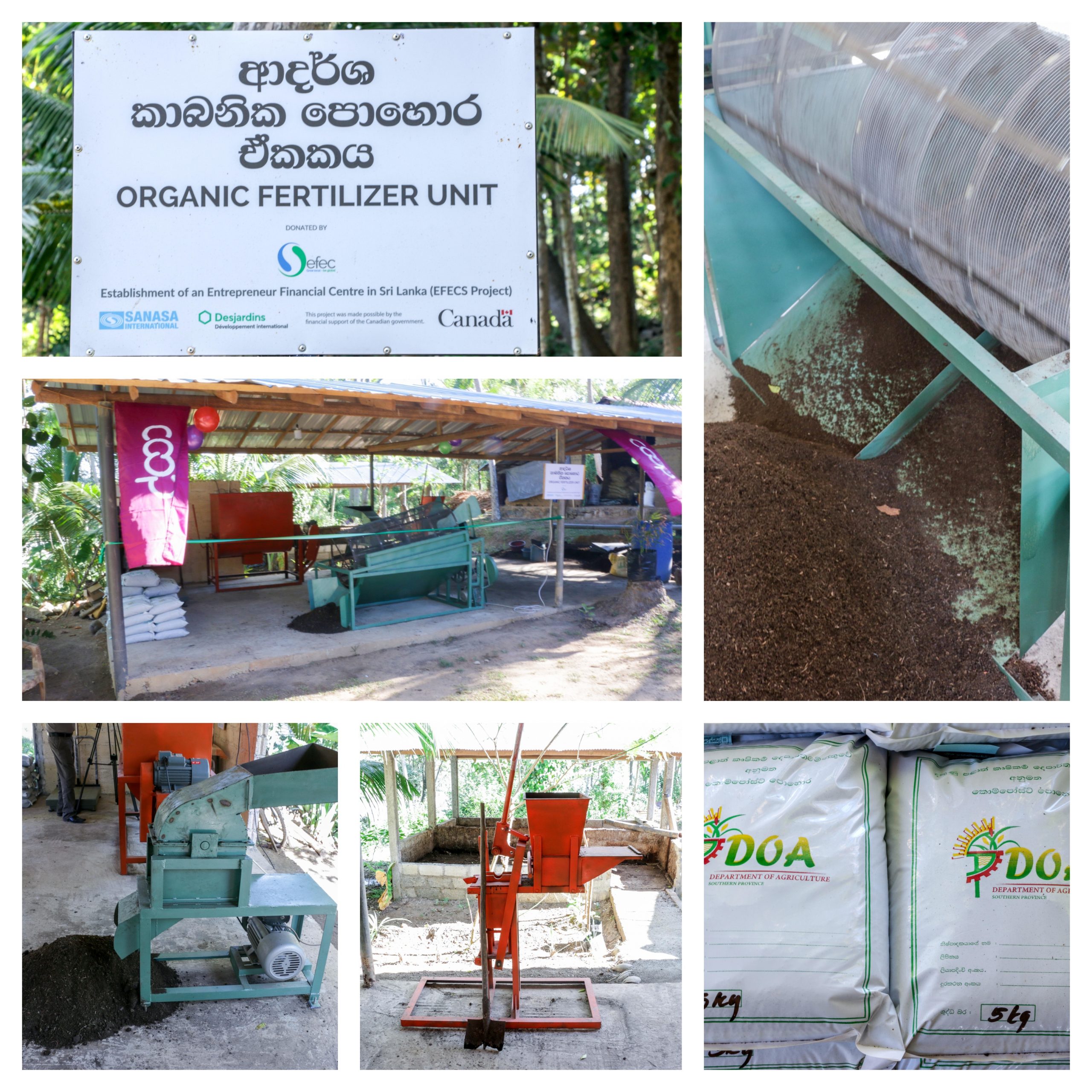The availability of quality organic fertilizer (compost) is one of the main issues to be addressed in organic agriculture. Quality raw materials are essential to get quality agricultural products. Additionally, these raw materials should be easily available, reasonably priced and in close proximity to the relevant farming lands. Due to poor quality, organic fertilizer applications often have to be used in huge quantities for proper effectiveness. The SEFEC project helped T.C.L. Ratnayake, owner of the Beliatta Organic Fertilizer Production Plant which produces approximately 1500 kg of organic fertilizer per month, obtain a financial facility through SANASA Development Bank to expand production at his plant. Ratnayake has been successfully marketing his produce under the brand name “Haritha Products” where his main customers are the Department of Agriculture (DOA) and farmers who live in the area.
Under the post-COVID-19 Emergency Program, SEFEC facilitated the creation of a cattle farmers’ association to provide raw material to the plant. The association received financial support to purchase a semi-automation system to increase the efficiency of the plant. Once this process is finalized, the production capacity is expected to increase tenfold and the plant will be well-placed to fulfill the high demand for quality organic fertilizer in the region. Organic fertilizer thus produced will be available in dry compost and liquid forms where the latter can be used as a pest insect repellent. This is a unique competitive organic fertilizer that can go into the farmer markets, is 100% free from weed seeds, and enriched in main essential nutrients as shown through samples sent to the Industrial Technology Institute (ITI) for nutrition component reports.
Established in 2017 by SANASA International and DID Canada (Development international Desjardins), SANASA Entrepreneur Financial Expertise Centre (SEFEC) aims to facilitate sustainable growth and development of Micro, Small, and Medium Enterprises (MSME) in four selected value chains – rice, pepper, banana, and tourism. As the central incubator for the SANASA network for value chain development and value chain financing, SEFEC recognizes the importance of strengthening cooperatives with better market information and stronger networking. It facilitates local cooperative societies to create better products and service platforms to enable the sustainable development of an MSME sector in Sri Lanka.
In April 2020, the SEFEC team developed an Emergency Program with the objective to provide immediate assistance to MSMEs operating in the project’s targeted value chains and geographic areas towards their recovery from the negative impact of the COVID-19 outbreak. The program was to be implemented over a 6-month period with total funding of Rs. 77.7 million provided by Global Affairs Canada. The program focused on a number of priority areas including promoting crop diversification activities for smallholder farmers and rural women entrepreneurs; introduction of processing equipment for value addition in the agricultural value chains; facilitating the creation of market linkages for producer organizations; preparation of the ground for re-launch of community-based tourism activities in Northern Province; and facilitating access to affordable loans for MSMEs including women conducting income-generating activities.


Leave a Reply